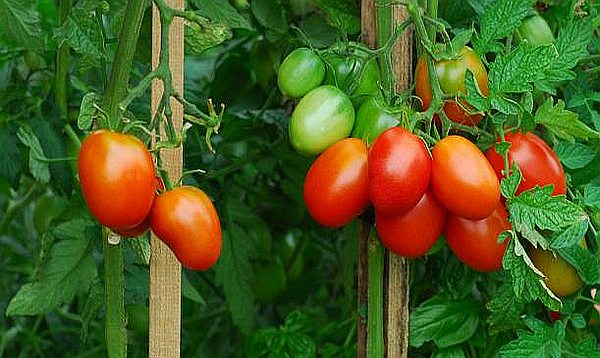Washington, D.C. - President Barack Obama's administration took a big step on Thursday toward terminating a 16-year-old tomato trade agreement with Mexico following a request from growers in Florida, an important swing state in the presidential election.
Florida growers compete with Mexico for the US winter and early spring tomato market. They have pressed the Obama administration since June to terminate the Mexico pact on grounds it fails to protect them against Mexican tomatoes sold in the United States below the cost of production.
The US Commerce Department stopped short of immediately tearing up the agreement but took a preliminary position in favor of ending the pact. It said it would make a final decision "as soon as practicable" and in no longer than 270 days.
The decision surprised Mexican officials and tomato producers, who have offered to renegotiate the pact. They argue the 1996 agreement has benefited US consumers and brought stability to the North American market.
An end to the agreement would clear the way for US growers to seek anti-dumping duties that could lead to higher prices for Mexican tomatoes sold in the United States.
"Today's preliminary decision is welcome news to domestic growers and the workers who have suffered under an outdated and failed agreement governing trade in fresh tomatoes with Mexico," Reggie Brown, director of the Florida Tomato Exchange, said in a statement.
Mexican growers export about $1.9 billion worth of tomatoes to the United States. They say Florida producers have failed to keep pace with technology changes that have produced a tastier Mexican tomato and propelled sales in the US.
Many US agricultural and business groups weighed in favor of keeping the current pact out of fears the dispute could spark a tomato trade war that would have collateral damage on other commodities.
Francisco de Rosenzweig, a senior Mexican Economy Ministry official, said Mexico's government was "very surprised" by the decision, particularly as it came one day before a long-awaited meeting between Mexican growers and the Commerce Department.
"It's very unfortunate that they issued a preliminary decision against us first before sitting down with the Mexican producers," de Rosenzweig stated.
Martin Ley, a spokesman for Mexican producers, said they would put forth a "strong proposal" in the Friday meeting with US officials, which they still hope will lay the foundation for a new pact.
Mexico's Economy Minister Bruno Ferrari told the press earlier this week it was "obvious" the Florida Tomato Exchange had timed its request to put political pressure on the White House ahead of the November 6th presidential election.
Florida is one of several battleground states expected to determine the outcome of the election, where Obama is running against Republican challenger Mitt Romney.
"While we would have preferred that today's announcement would have ended the fight, the preliminary decision ratifying the domestic industry's position will help reverse the downward spiral in the industry," the director of Florida's Tomato Exchange said.
The existing pact is called a "suspension agreement" because the Commerce Department suspended an anti-dumping investigation against Mexico in 1996 and negotiated a minimum price at which Mexican tomatoes can be sold in the United States.
US distributors of fresh produce sided with Mexico in the dispute, calling the notice of intent to terminate the agreement a "slap in the face" to the Mexicans and noting that thousands of jobs in border states rely on the tomato importing business.
The Fresh Produce Association of America accused the Obama administration of acting hastily on political motives and said numerous US industry groups had lobbied to uphold the tomato agreement.
"Even Walmart, the biggest retailer in the world, supported keeping the tomato suspension agreement," said Lance Jungmeyer, president of the group said.


